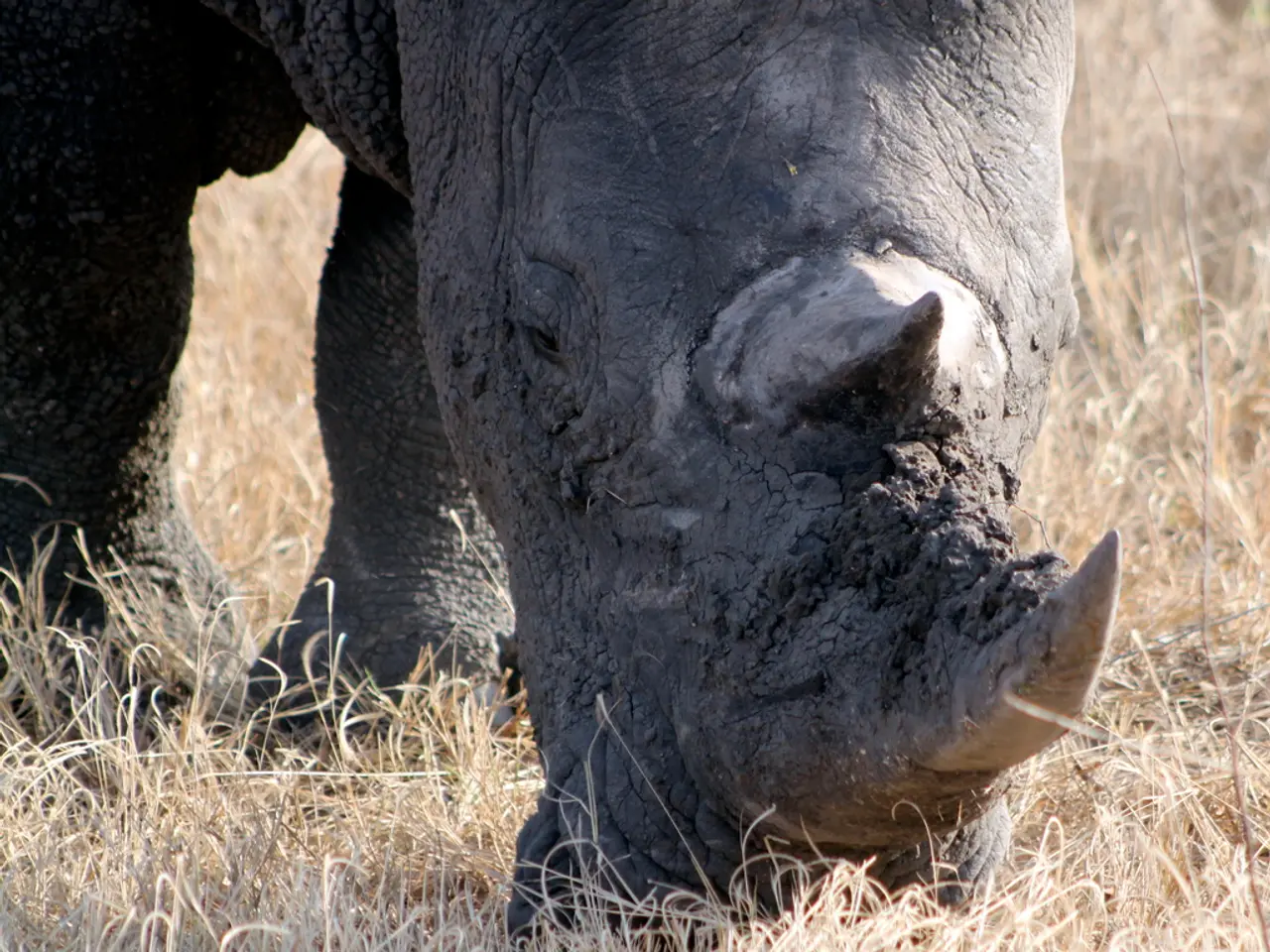Uncovering the Range of Vultures' Ability to Detect Decay: Exploring Nature's Undying Scavengers
Turkey vultures, with their keen sense of smell, play a vital role in maintaining ecosystem health and nutrient cycling. These birds, known scientifically as Cathartes aura, possess an extraordinary olfactory system that allows them to detect carcasses from over a mile away under ideal conditions.
The vulture's sense of smell is exceptionally keen, rivaling that of many mammals. Turkey vultures, in particular, have the largest olfactory bulbs among vultures, enabling them to detect even faint odors. This strong olfactory ability is essential for their scavenging role, allowing them to locate decaying animals quickly and efficiently.
The terrain can influence scent detection, with open areas allowing for scents to travel unimpeded. However, wind direction and strength can significantly impact a vulture's ability to detect scents. Larger and decomposing carcasses produce stronger odors, making them easier to find.
Interestingly, black vultures (Coragyps atratus) use a combination of sight and smell, often relying on the turkey vultures' olfactory detection. Black vultures have a less developed sense of smell compared to their counterparts.
Conservation efforts are essential to protect vulture populations and ensure their continued role in the environment. Vulture populations are facing threats worldwide, including habitat loss, poisoning, and persecution. Habitat preservation and restoration is crucial for vulture survival, including preserving open grasslands and woodlands, and ensuring access to safe nesting sites.
Education and awareness campaigns can help change attitudes towards vultures and promote their conservation. Anti-poisoning campaigns aim to educate people about the dangers of poisoning and promote alternative methods of predator control. It is crucial to understand the important role vultures play in preventing the spread of disease and recycling nutrients back into the environment.
In conclusion, turkey vultures are remarkable creatures with an exceptional sense of smell that serves a vital purpose in maintaining ecosystem health. Their role in nutrient cycling, disease prevention, and accelerating the decomposition process is invaluable. Conservation efforts are needed to protect these birds and ensure their continued presence in our ecosystems.
[1] Source: National Geographic. (2017). How Vultures Find Food. Retrieved from https://www.nationalgeographic.com/animals/birds/t/turkey-vulture/ [2] Source: Cornell Lab of Ornithology. (n.d.). Turkey Vulture. Retrieved from https://www.allaboutbirds.org/guide/Turkey_Vulture/lifehistory
- The keen sense of smell in turkey vultures, as seen in the field of environmental science, helps them maintain the health and wellness of ecosystems by detecting and consuming decaying animals, thus preventing the spread of disease and recycling nutrients.
- The medical-conditions sector reveals that these birds, like Cathartes aura, have an extraordinary olfactory system that enables them to identify even the faintest odors, a key attribute for their role as scavengers.
- In the realm of technology, conservationists utilize advanced tools and methods in education-and-self-development to raise awareness and combat threats such as habitat loss and persecution, ensuring the survival of bird species like turkey vultures.
- In the varied world of entertainment and general-news, it's fascinating to learn that black vultures rely on their sight as well as the olfactory abilities of turkey vultures to locate carcasses more easily – an interesting example of cooperation in the animal kingdom.
- The sports of birdwatching and ecotourism often bring people closer to the wonders of nature, affording glimpses of birds like turkey vultures and contributing to their conservation in a unique, non-invasive manner, as part of a larger movement for health-and-wellness and responsible living within our environment.




